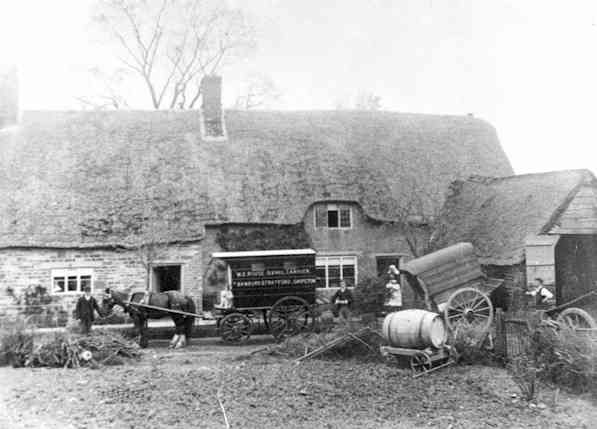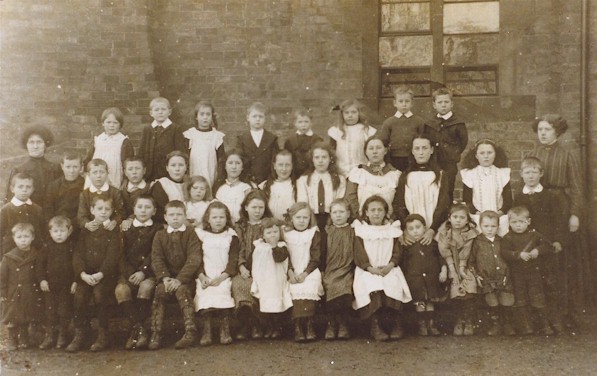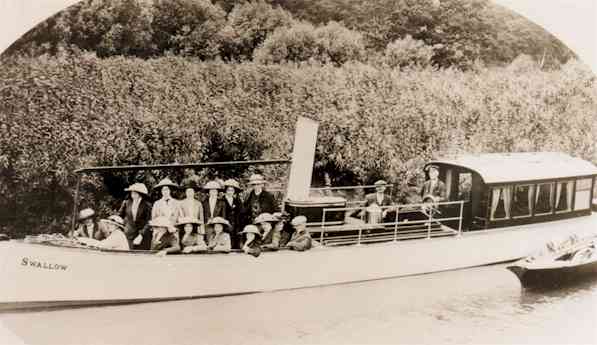Oxhill News
www.oxhill.com / www.oxhill.org.uk
South Warwickshire, England.
The Oxhill News
September 2014
Contents
Oxhill and the First World War
Oxhill in 1914 was still a wholly rural community, with most people employed on local farms, together with a few tradespeople such as baker, cobbler, blacksmith and carpenter. Agricultural wages were low, and the average family desperately poor. Evelyn Gilks, (born, 1908, later Mrs Colyer), was shocked as a child to visit a cottage where she found a bare room, with flagged floor, table, a couple of wooden chairs and an old sack before the fire. Many villagers kept a pig, and grew their own vegetables either in gardens or allotments, but poorer people often saw no butcherís meat, just bacon and rabbit. The smaller cottages had only open fires to cook on, and boiled bacon was cooked in one large pot, together with cabbage and potatoes in a net. This was supplemented with plain pudding of flour and suet. Water came from wells, the village pump, or for some directly from the brook.

Oxhill's Rouse Village Carrier circa 1900
Children were educated at the village school, leaving at 14, and the standard of education under the headmistress, Miss French was by all accounts good. Most of the children were poorly dressed, and attendance was not always consistent, but each child got individual attention, and although discipline was strict, the school had a happy atmosphere.

Oxhill School Photo 1911
Sundays were special, people wore their best clothes, and both Church and Chapel were well attended, with each child in the village attending Sunday School twice a day.
There was a station then at Kineton, but transport generally was by the village carrier who drove his horse and covered van on set days to Shipston, Banbury and Stratford. Otherwise people got about on bicycle or on foot.
Doctors came from Kineton or Shipston, but at 2/6 a visit, the poor used them only in dire emergencies. As there was no telephone in the village, someone had to cycle to fetch them, and they often came too late to help. Childhood illnesses could kill, and TB was also common. The mentally ill were dispatched to Hatton Asylum, and the elderly and infirm to Shipston Workhouse.

"I trust the hats worn were securely anchored!"
Oxhill Church Choir outing on the river at Tewkesbury in 1913
When wartime came, there was initial excitement in the village, and a rush to enlist. Thirty one Oxhill men served in the Great War, and of these eleven were members of the Gilks family. There were seven casualties, three of them Gilks, including a pair of brothers, one of whom died on the first day of the Somme, when so many were mown down.
One of the village veterans had suffered a head wound, and lived thereafter with a metal plate in his head.
On the farms, many horses were commandeered for war use, their loss keenly felt. Women took over the menís work in the fields, and the village was scandalised when two of them wore breeches to do so. Working parties were held at the Rectory, to make scarves and other items for the troops.
As the war progressed and merchant ships were sunk, food shortages were felt, and time that the Rectorís wife managed to obtain and distribute a barrel of pickled herrings was long remembered.
The Armistice caused great rejoicing, and was celebrated with sports and teas.
However the traumas of war, and the changes in agriculture and in social conditions meant that the village to which soldiers returned was not the same as the one they had left. A new era had begun.
Ann Hale, 2014
This site is maintained by villagers of Oxhill for the benefit of the community and those interested in the history, news and activities that make the village such a pleasant place to live.
Send mail to the editor of the Oxhill News at news-editor @ oxhill.org.uk.
©2014 Oxhill Village (Terms and Conditions of use)
Last modified: August 31, 2014